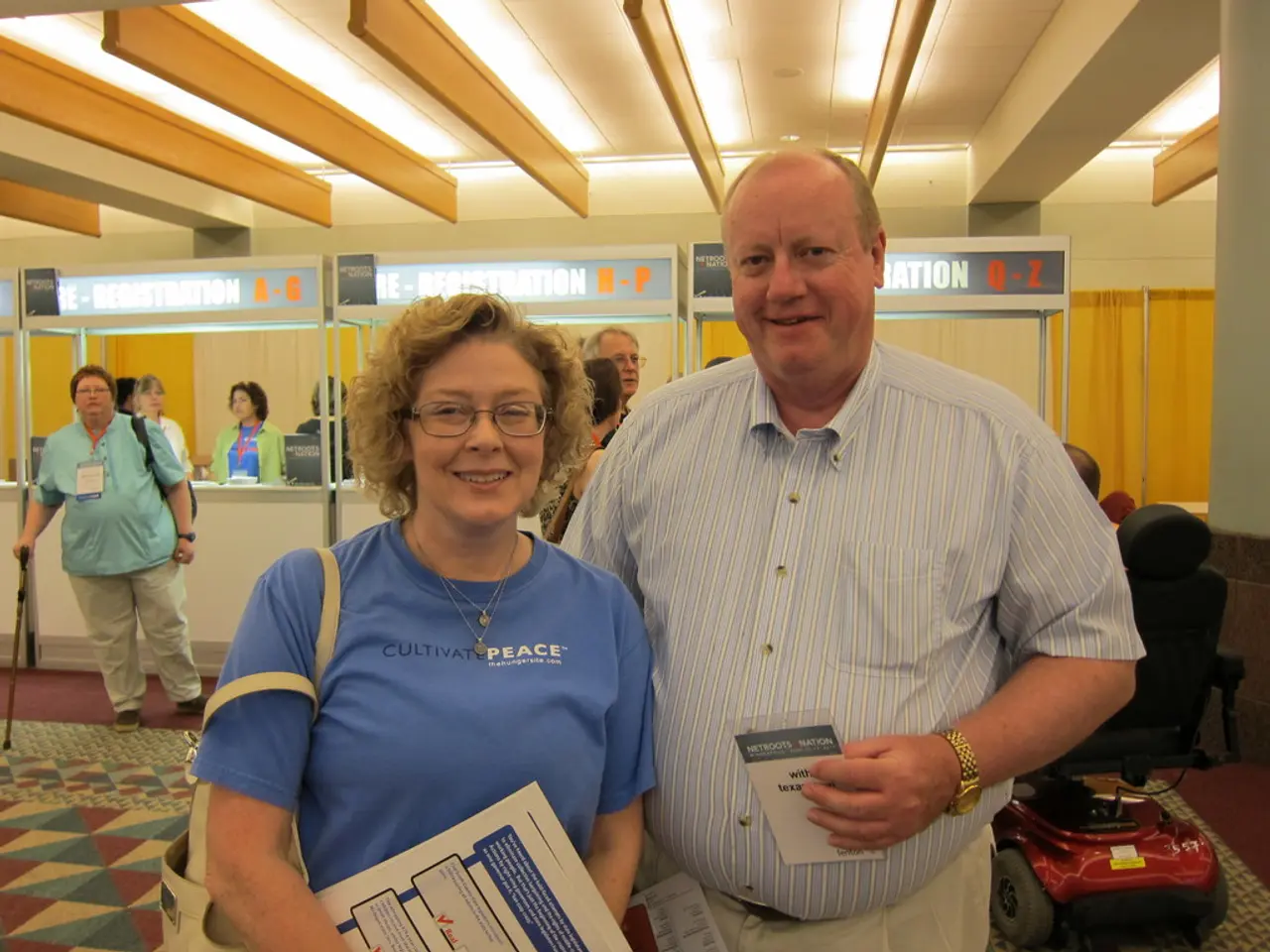Struggles with Inclusion Leading to Disregard - Slipping Through Every Safety Net - "Should inclusivity falter, prepare for cascading setbacks across all layers"
In the heart of Germany, a 34-year-old man named Jan Christopher Weber from Münster is battling against numerous barriers in his quest for a self-sufficient life. Born with Hydrocephalus, or "water on the brain," Weber has undergone around 30 operations and faced challenges since his early school days.
Weber's journey began in 2002 when inclusion was not yet a prevalent topic in schools. Despite his struggles, he persevered and has been working voluntarily in the Disability Commission of the city of Münster since 2011. However, his lack of school or vocational qualifications has made it difficult for him to find suitable employment opportunities.
Over the years, Weber has searched nationwide for vocational training centers, but he could not find a suitable one. This predicament is a concern shared by LWL Social Department Director, Takis Mehmet Ali, who criticizes the current labor market and education system for failing to provide real inclusion. Ali emphasizes the need for binding, barrier-free educational and training paths that cater to individual needs, not system boundaries.
The NRW Ministry of Social Affairs has taken steps to support individuals like Weber. They have announced an initiative called "100 additional training places for young people and adults with disabilities in NRW" to help them in the post-matching phase. However, the success of such initiatives heavily depends on the employer's commitment to an inclusive corporate culture and awareness of legal protections and accommodations.
The Accessibility Act in Germany, while mandating businesses to improve accessibility, has exemptions that may limit its reach, such as excluding microenterprises (fewer than 10 employees) and some aspects of accessibility in professional or infrastructural domains. These exemptions potentially reduce opportunities for some disabled individuals in smaller companies or certain industries.
The UN Convention on the Rights of Persons with Disabilities, which has been in effect in Germany since 2009, emphasizes the right to equal access to school and vocational training for people with disabilities. If the nature or severity of a disability makes it impossible to train in a recognized training occupation, a vocational qualification through a specialist practitioner training could be an option.
In adulthood, a secondary school leaving certificate can be obtained at evening schools. A former high school teacher suggested that Weber should find a niche in the public service. The opposition CDU in Münster is pushing for a significantly higher municipal employment quota for disabled people.
However, Weber's mother states that inclusion has failed for her son. His hope for a self-financed life is diminishing due to the lack of opportunities. He wishes for a quick chance, expressing concern that the longer he has to wait, the more difficult it will be for him to find a job.
Inclusive recruitment guidelines for sensory disabilities are gaining ground, indicating a positive shift towards accommodating people with complex disabilities in employment. Model programs from other countries, such as France’s "Working First," emphasize individualized support, respect for autonomy, and changing societal attitudes—elements that could strengthen Germany’s inclusion policies if implemented similarly.
While Germany’s inclusion policies provide a foundation and show promising developments in integrating individuals with multiple disabilities into work and training, the actual effectiveness depends heavily on workplace culture, tailored support, and closing legal or practical exemptions that limit access. No direct case data on Jan Christopher Weber is found in the search results, so detailed insights about his experience would require further specific investigation.
- Jan Christopher Weber, inspired by inclusion policies and the need for real inclusion, advocates for binding, barrier-free educational and training paths that cater to individual needs.
- Recognizing the importance of mental-health and health-and-wellness, Weber expresses concern about the lack of suitable vocational training opportunities in the field of education-and-self-development and career-development.
- As a proponent of science and the UN Convention on the Rights of Persons with Disabilities, Weber believes that Germany should implement individualized support, respect for autonomy, and changing societal attitudes like France's "Working First" program, to strengthen its inclusion policies for people with complex disabilities.




